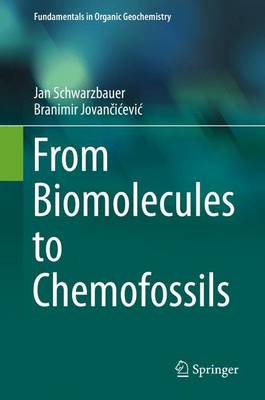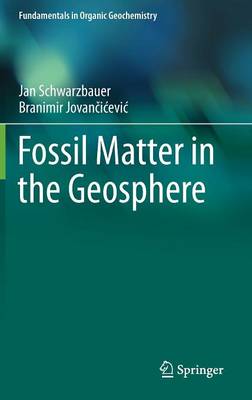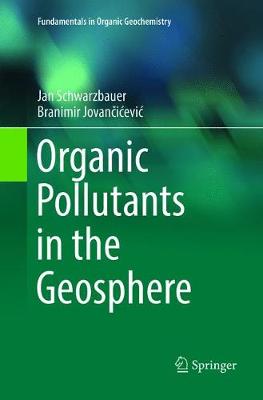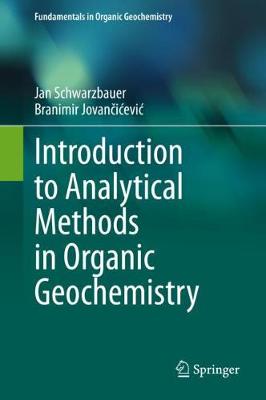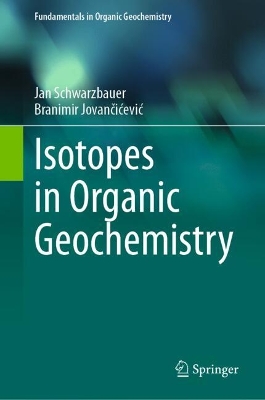Fundamentals in Organic Geochemistry
5 total works
From Biomolecules to Chemofossils
by Jan Schwarzbauer and Branimir Jovancicevic
This second volume in the series 'Fundamentals in Organic Geochemistry' focusses on molecular chemical aspects introducing the structural diversity of natural products, their fate in the sedimentary systems and the consequences of the corresponding alterations for geoscientific questions. Organic Geochemistry is a modern scientific subject characterized by a high transdisciplinarity and located at the edge of chemistry, environmental sciences, geology and biology. Therefore, there is a need for a flexible offer of appropriate academic teaching material on an undergraduate level addressed to the variety of students coming originally from different study disciplines. For such a flexible usage this textbook series consists of different volumes with clear defined aspects and with manageable length.
Organic Pollutants in the Geosphere
by Jan Schwarzbauer and Branimir Jovancicevic
This third volume focusses on anthropogenic organic pollutants harming the environment. Their structural diversity and fate in the environment, their effects and relevance are presented. For such a flexible usage this textbook series 'Fundamentals in Organic Geochemistry' consists of different volumes with clear defined aspects and with manageable length. Organic Geochemistry is a modern scientific subject characterized by a high transdisciplinarity and located at the edge of chemistry, environmental sciences, geology and biology. Therefore, there is a need for a flexible offer of appropriate academic teaching material on an undergraduate level addressed to the variety of students coming originally from different study disciplines.
Introduction to Analytical Methods in Organic Geochemistry
by Jan Schwarzbauer and Branimir Jovancicevic
All sub disciplines in Organic Geochemistry (Petroleum Geochemistry, Environmental Geochemistry etc.) are linked by the basic analytical approaches used for identification and quantitation of individual organic substances. Hence, a fundamental prerequisite for organic geochemists is the knowledge not only about the individual analytical techniques but more about their potential as well as their limitations.
In this issues basic analytical procedures and techniques are introduced comprising fundamental steps like sampling and sample storage, aspects of sample treatment like extraction and fractionation procedures and finally the specific techniques used for organic analyses on partially very low concentration levels such as mass spectrometry or infrared spectroscopy. Beside the technical aspects also application on organic-geochemical problems and the standard data evaluation practice is introduced. Finally, special chapters point to analytical pitfalls and to principal standard operation procedures.
The intention of this issue is to get the readers familiar with analytical Organic Geochemistry and to enable them to assess the quality and suitability of specific analytical approaches, in particular with respect to the organic-geochemical problems.
Isotopes in Organic Geochemistry
by Jan Schwarzbauer and Branimir Jovancicevic
This volume of the series Fundamentals of Organic Geochemistry provides an overview of isotope analysis in organic geochemistry and related fields of applied sciences. It dives deep into the basics of isotopes and isotopic fractioning processes with applications e.g. in environmental biodegradation or correlations of fossil matter. This textbook helps students understanding the geoscientific, analytical, and chemical isotope aspects in complex natural systems. Students learn the importance of isotope organic geochemistry and its relationship to fundamental processes in the geosphere and biosphere, which include e.g. photosynthesis, evaporation/precipitation within the global water cycle, biotic degradation, and biosynthesis.
The book is intended for chemistry and geoscience students at BSc, MSc, and PhD levels.
